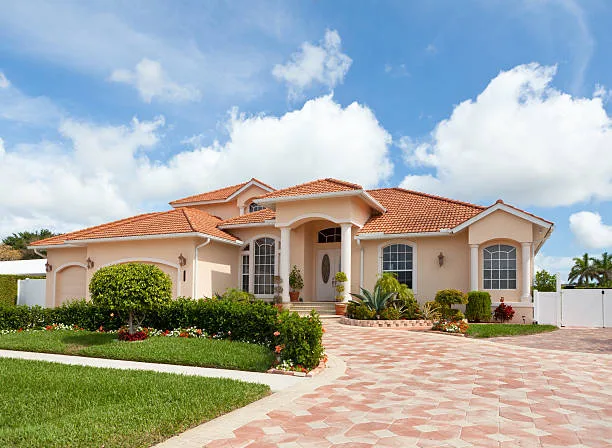When it comes to residential roofing, understanding the costs involved is crucial for homeowners looking to maintain, repair, or replace their roof. This comprehensive guide delves into the nuances of roof installation costs, offering insights into what homeowners can expect when planning their roofing projects.
Understanding Roofing Costs
The Basics of Roof Installation
The cost of installing a new roof on your residential property varies widely based on several factors, including the materials chosen, the size of your roof, and the complexity of the installation. On average, homeowners can expect to spend anywhere from $5,000 to $10,000, but this range can increase significantly for high-end materials or complex roof designs.
Factors Affecting Roof Installation Costs
- Material Costs: The choice of roofing material is one of the most significant cost factors. From asphalt shingles to metal roofing, costs can vary dramatically.
- Roof Size: The larger your roof, the more materials and labor will be required, increasing the overall cost.
- Roof Complexity: Features like skylights, chimneys, and the roof’s pitch can add complexity and cost to the installation process.
- Labor Costs: The expertise and experience of your roofing contractor play a crucial role in both the quality of the work and the price.
Choosing the Right Roofing Material
When selecting roofing materials, it’s essential to balance cost with longevity, aesthetics, and maintenance requirements. Popular options include:
- Asphalt Shingles: Cost-effective and widely available, asphalt shingles are a popular choice for many homeowners. Learn more about their costs here.
- Metal Roofing: Offering durability and energy efficiency, metal roofs are a long-term investment. Explore metal roofing options.
Budgeting for Your Roof Installation
Estimating Your Costs
To accurately budget for your roof installation, consider getting multiple estimates from reputable contractors. These estimates should include all potential costs, from materials to labor. For a detailed breakdown, visit our roofing estimate guide.
Financing Your Roof Installation
Understanding your financing options is crucial, especially for extensive roofing projects. Options include home equity loans, financing plans from your roofing contractor, and personal loans. Discover more about roof financing options.
Choosing a Roofing Contractor
Selecting the right contractor is just as important as choosing your roofing materials. Look for experienced, licensed professionals with solid references. For tips on finding the best roofing contractor, check out our guide here.
The Importance of Roof Warranties
Roof warranties protect your investment by covering material defects and installation errors. Understanding the terms and what’s included is crucial. Learn more about understanding roof warranties.
Preparing for Roof Installation
Scheduling and Timeline
Discuss the project timeline with your contractor to understand how long the installation will take and plan accordingly. For scheduling, visit our schedule page.
What to Expect During Installation
Roof installation can be noisy and disruptive. Preparing your household for this process can help minimize the impact. For a smooth installation process, check out what to expect.
Maintenance and Upkeep
Regular maintenance can extend the lifespan of your roof and prevent costly repairs down the line. This includes regular inspections, cleaning, and prompt repairs of minor issues. For professional roof maintenance services, click here.
Long-Term Considerations for Roofing Materials
Choosing the right material for your roof is a decision that impacts not just the upfront cost but also the long-term value and durability of your roofing system. Here’s a closer look at some popular materials:
- Tile Roofing: Known for their longevity and aesthetic appeal, tile roofs are an excellent option for homeowners looking for a distinctive look with minimal maintenance requirements. Learn about tile options at Tile Roofing in Port Charlotte.
- Slate Roofing: Slate offers a natural look with unmatched durability, often lasting over 100 years. However, its weight and cost make it less common. Discover more about durable roofing materials at Best Roofing Materials and Options.
The Impact of Geography on Your Roofing Choice
Your home’s location significantly influences the ideal roofing material due to weather patterns and local building codes. For instance, in hurricane-prone areas, materials offering higher wind resistance, like metal roofing, might be preferable. For insights on how to storm-proof your roof, explore The Ultimate Guide to Storm-Proofing Your Roof.
Environmental and Energy Considerations
Today’s homeowners are increasingly looking for eco-friendly and energy-efficient roofing options. Here are a few considerations:
- Solar Panels: Installing solar panels on your roof can significantly reduce your energy bills and carbon footprint. Learn about integrating solar panels with your roofing system at Residential Metal Roofing in Port Charlotte.
- Cool Roofing: Materials that reflect more sunlight and absorb less heat can keep your home cooler, reducing your air conditioning needs. Explore energy-efficient roofing options at Sustainable Roofing.
Roofing and Home Insurance
The type of roofing material you choose can affect your home insurance premiums, especially in areas susceptible to severe weather. Materials that are more resistant to fire, hail, and wind often qualify for discounts. For advice on navigating insurance claims, check Navigating Insurance Claims.
DIY vs. Professional Roof Installation
While a DIY approach may seem cost-effective, roofing installations require specialized skills and knowledge to ensure safety and durability. Understanding the risks and requirements of a roofing project is crucial before deciding to undertake it yourself. For a detailed comparison, see Can I Replace My Own Roof?.
The Role of Professional Roof Inspections
Regular professional inspections can help identify potential issues before they require costly repairs, ensuring the longevity of your roof. Learn more about the benefits of regular roof inspections at The Ultimate Guide to Roof Inspections.
Recovery After Storm Damage
Living in areas prone to severe weather means your roof may suffer from storm damage. Understanding the steps to assess and repair damage quickly can prevent further issues. For emergency repair services, visit Emergency Roof Repair.
The Importance of Prompt Repairs
Delaying roof repairs can lead to more significant problems, including structural damage and mold growth. For professional roof repair services, check out Professional Roof Repair Services.
Upgrades and Enhancements
When installing or replacing a roof, consider upgrades that can enhance functionality and aesthetics:
- Skylights: Adding skylights can improve natural lighting and ventilation.
- Roof Ventilation: Proper ventilation is critical for preventing heat and moisture buildup, extending the life of your roof. Learn about ventilation solutions at Roof Ventilation: Important Facts.
Choosing the Right Contractor: Beyond the Basics
Selecting a roofing contractor is a decision that shouldn’t be based solely on cost. Evaluating the contractor’s experience, licensing, insurance, and previous work is essential. For guidance on choosing a contractor, see Finding the Right Roofer Company for Your Home.

